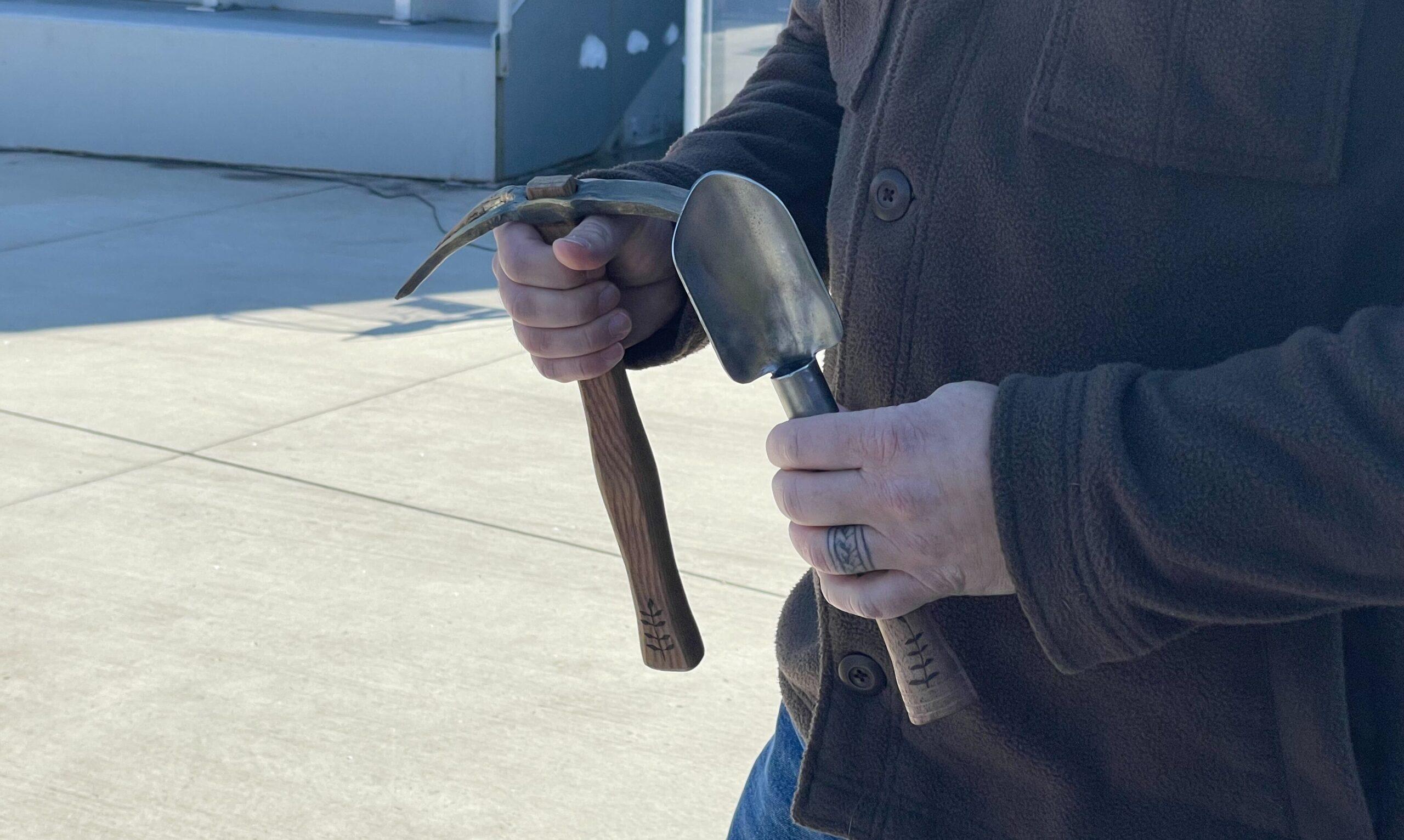Denver Police Division Chief Ron Thomas paused before repeating a startling statistic: Last year, 82 people died from gun violence in Denver, meaning fatal shootings accounted for a majority of the 96 homicides in the city.
On Tuesday, Thomas joined Denver City Councilmember Amanda Sawyer, Aurora City Councilmember Curtis Gardner and the Denver Broncos to announce a series of gun-buyback events starting this month that organizers hope will reduce those numbers. He said DPD is backing the effort because they can eliminate the chance of guns being used in a crime.
Thomas said the last time Denver hosted a gun-buyback event was 1993.
"The Denver Police Department is strongly encouraging [the public] to take advantage of these gun bag back events, to dispose of unwanted firearms that may find their way into the wrong hands," Thomas said
As part of the program, guns are destroyed, but they don't go to waste.
Instead, they're repurposed by a company called RAWtools, which turns them into garden tools.
"This is not a simple buyback, this is post-vention and prevention," said Mike Martin, founder and executive director of RAWtools. "It is a mass effort to collaborate as neighbors to take that which harms our communities and transform it into something that will bring life to our communities."
People will get Visa gift cards in exchange for their guns. Martin said rifles and double-barrel shotguns will garner $50, handguns and semiautomatic rifles will net $150, and assault-style rifles will go for $250. Ghost guns, which are illegal in Denver, and homemade guns will be accepted, but people won't get money for them. Martin said he anticipates getting anywhere from 400 to 500 guns from each city.
Are these programs actually effective? Research suggests mixed results.
Dr. Garen J. Wintemute is an expert on gun violence. He's an emergency-medicine professor and director of the Violence Prevention Research Program at UC Davis Health.
"It's not realistic to expect buybacks by themselves to lower rates of firearm violence, but they can help communities mobilize for a sustained effort that will," Wintemute told Denverite in an email.
Thomas said he does believe the program will help reduce crime. He said it's still valuable if "law-abiding citizens" return guns since firearms can sometimes end up stolen and used for crimes.
Wintemute co-authored a report in 2013 looking at gun-buyback programs. These programs became popular around the country after the Sandy Hook shooting. When the Los Angeles County Sherriff's Department and other departments held buyback events in 2013, the agency ended up collecting and destroying more than 5,400 guns. But that was an anomaly, since the report suggests most programs collect less than 1,000 guns, and this small scale means it doesn't do much for keeping them away from potential criminals.
"As such, it is not surprising that impact evaluations have failed to find any link between gun buyback programs and subsequent decreases in gun violence," the report reads.
The reports suggests two ways to improve the effectiveness of these programs are targeted advertising to young people in urban neighborhoods most affected by gun violence and offering graded incentives, such as varying the amount of money based on the type of gun, to encourage people to turn over firearms. The report highlights Boston as having a successful program in 2006, which led to a drop in gun violence.
The first buyback event is scheduled for March 19.
It will take place at the Mile High Monument, Lot J, at Empower Field, from 10 a.m. to 1 p.m. It will be done in a drive-thru style.
Seven more buybacks are scheduled in Denver and Aurora, with some locations to be determined.












